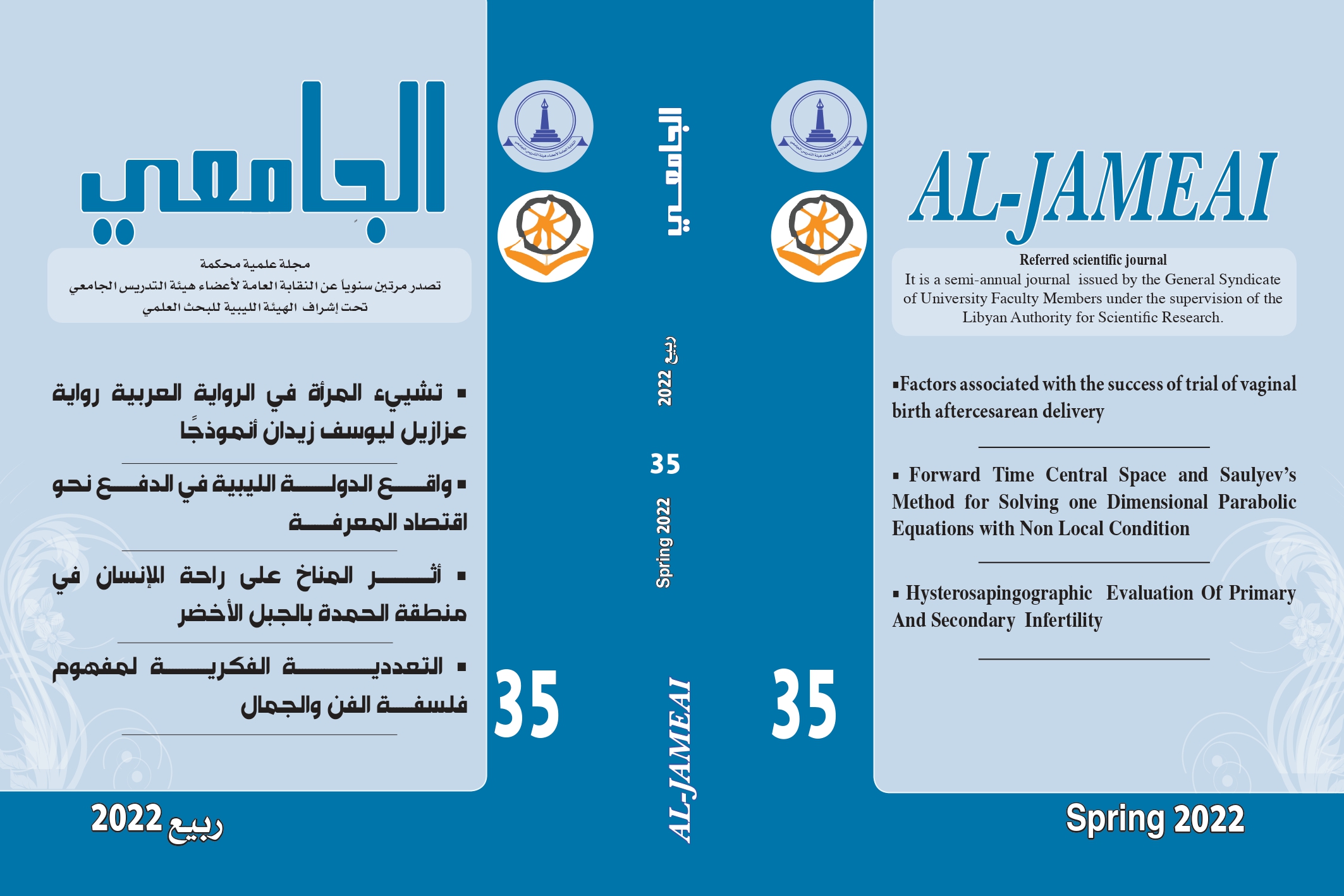تحديات تطبيق الإدارة الالكترونية في إدارة المشروعات الزراعية
Abstract
الملخص:
هدفت الدراسة إلى التعرف إلى أهم تحديات تطبيق الإدارة الالكترونية في إدارة المشروعات الزراعية، ودراسة الواقع الليبي وكيفية تعامله مع الإدارة الالكترونية في المؤسسات والإدارات الخاصة بالمشروعات الزراعية إلكترونياً، وكذلك التعرف على ماهية الإدارة الإلكترونية أهدافها ومكاسبها. وقد واستخدم الباحثان في هذه الدراسة المنهج الوصفي التحليلي. وتم تحديد النتائج بناء على استبانة تم توزيعها على مفردات البحث المتمثلة في عينة عشوائية من الموظفين العاملين في المصرف الزراعي ومكتب التوثيق والمعلومات بوزارة الزراعة، حيث وزع (180) إستبانة، وبعد تدقيق كل استبانة للتأكد من استيفاء البيانات المطلوبة للتعرف على مدى تطبيق عينات الدراسة للإدارة الإلكترونية، تم استبعاد (36) استبانة كنسبة حيود واستبانة لعدم الصلاحية، وبذلك يصبح عدد الاستبيانات التي تم تحليلها (125) إستبانة، و تم استخدام التحليل العامل التوكيدي (FAC) والذي يهدف إلي تأكيد مدى مساهمة كل متغير (سؤال في الاستبيان) وكونه يمثل بشكل حقيقي تحديا أمام المؤسسات في تطبيق الإدارة الالكترونية، وأظهرت الدراسة عدة نتائج أهمها قلة الإمكانيات المادية لتمويل متطلبات تطبيق الإدارة الالكترونية، وكذلك نقص الخبرات والكفاءات للعمل على تطوير الإدارة التقليدية، و ضعف البنية التحتية للاتصالات، و الافتقار لمهارات تصميم منظومات الكترونية بالمشروعات الزراعية.
Abstract:
The study aimed to identify the most important challenges of applying electronic management in the management of agricultural projects, and study the Libyan reality and how it deals with electronic management in institutions and departments for agricultural projects electronically. as well as, identifying the nature of electronic management, its goals and gains. In this study, the researcher used the descriptive analytical method. The results were determined based on a questionnaire that was distributed to the research vocabulary, represented by a random sample of employees working in the Agricultural Bank and the Documentation and Information Office at the Ministry of Agriculture. Electronically, (36) questionnaires were excluded as a percentage of diffraction and a questionnaire for invalidity, thus the number of analyzed questionnaires became (125), and the confirmatory factor analysis (FAC) was used, which aims to confirm the contribution of each variable (question in the questionnaire) and that represents a real challenge for institutions in applying electronic management, The study showed several results, the most important of which is the lack of financial capabilities to finance the requirements of applying electronic management, as well as the lack of expertise and competencies to work on developing traditional management, the weakness of the communications infrastructure, and the lack of skills to design electronic systems in agricultural projects.
Downloads









